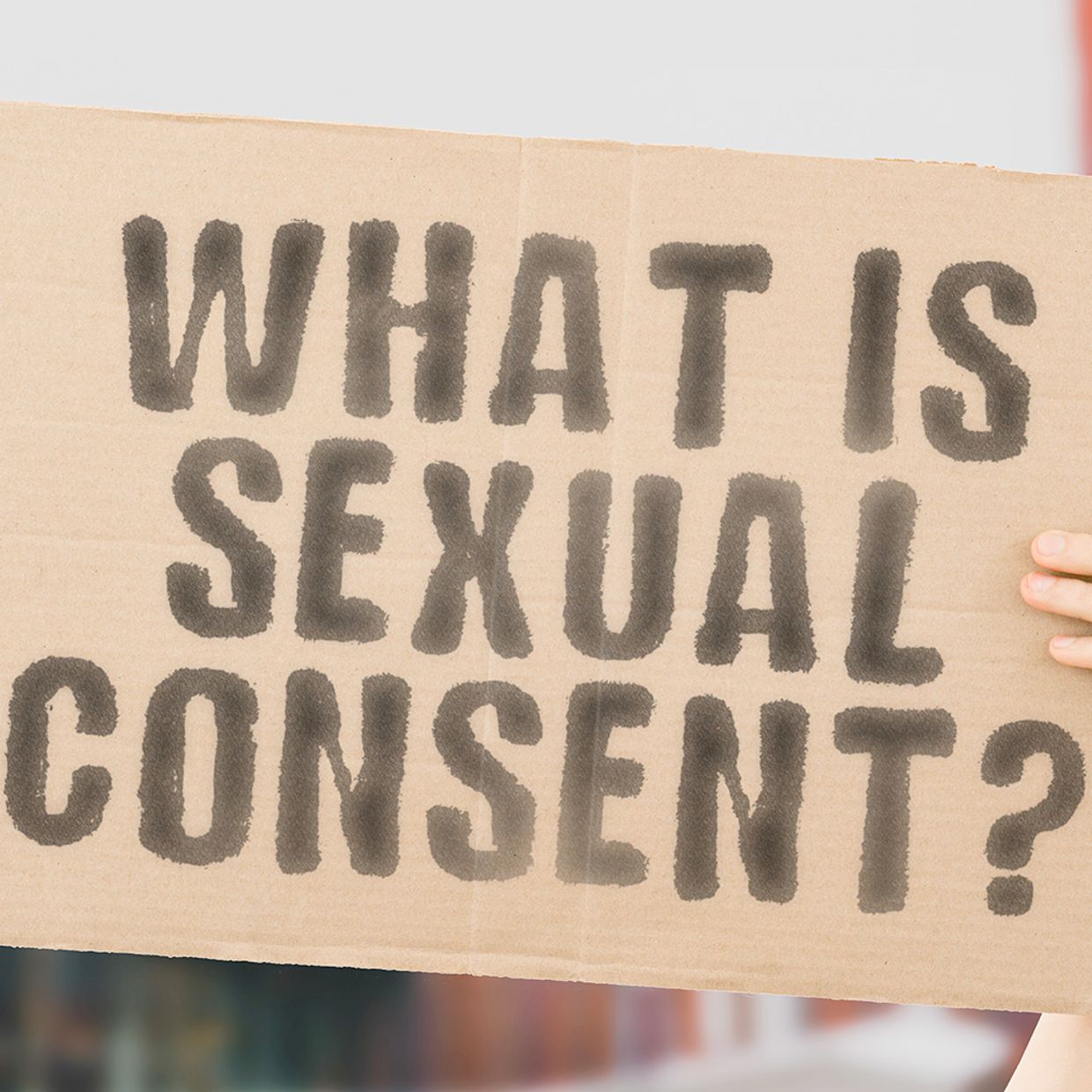
To pay for your reading on your telephone bill, simply call
Instantly message our featured psychics online via psychic messenger.
Click to start
Register now to start your reading online. PSYCHIC MESSENGER- Cheapest psychic service in the UK
- Our readers are available 24/7
- 100% confidential service
- In-depth, concise, personal readings
- Thousands of 5* reviews
Published 11/04/2024 by Joanne Jones
Setting Healthy Boundaries in Relationships
Establishing healthy boundaries in a relationship is crucial for maintaining a sense of self, mutual respect, and emotional well-being. Boundaries in relationships help define our personal space, comfort levels, and limits within an intimate relationship. They serve as guidelines for how we expect to be treated by our romantic partners.
Personal boundaries can be set in a relationship, including physical, emotional, sexual, intellectual, and financial boundaries. Physical boundaries involve respecting each other's personal space and physical touch preferences.
Emotional boundaries involve being mindful of each other's emotions and not crossing into each other's emotional territory without permission.
Sexual boundaries are important in establishing consent and mutual respect in an intimate relationship. It is essential to communicate openly about sexual desires, preferences, and boundaries to make sure both partners feel comfortable and respected.
Intellectual boundaries involve respecting each other's opinions, beliefs, and thoughts without judgment or criticism.
Financial boundaries involve discussing and setting clear expectations around shared expenses, financial responsibilities, and financial decisions within the relationship.
Read our guide on Should I End My Relationship?
Are Boundaries Healthy in a Relationship?
Are boundaries healthy in a relationship? Boundaries are not just healthy in a relationship; they are essential for the well-being of both partners and the relationship itself.
Establishing clear boundaries helps build a culture of respect, trust, and mutual understanding, creating a safe space where both individuals can grow and express themselves freely. These guidelines define each partner's comfort levels, expectations, and personal spaces, preventing misunderstandings and fostering a deeper connection.
Healthy boundaries encourage independence and individuality while nurturing a robust and supportive partnership. They are the cornerstone of a balanced, respectful, and loving relationship.

What Are Healthy Boundaries?
Healthy boundaries are the limits and rules we set for ourselves within relationships, which outline how we would like to be treated by others and what we find unacceptable.
They help us protect our self-esteem, maintain self-respect, and enjoy healthy relationships. Establishing healthy boundaries in relationships involves communicating your needs and desires clearly and respectfully without fear of reprisal or guilt.
Healthy boundaries allow us to understand and acknowledge where you end and someone else begins, ensuring mutual respect for personal space, emotional needs, and individuality.
Examples of Healthy Boundaries in a Relationship
Healthy boundaries in a relationship help build respect, mutual trust, and understanding. They cover everything from physical space to emotional and financial respect.
For example, physical boundaries respect individual comfort levels with touch and personal space, allowing partners to feel safe and valued. Emotional boundaries protect each person's psychological well-being, ensuring open communication of feelings without fear of judgment or dismissal from an abusive partner.
Physical Boundaries
Physical boundaries pertain to personal space, physical touch, and privacy. These boundaries include preferences for how often you like to be touched, what kind of touch you find comforting or unsettling, and how much personal space you need.
In a relationship, respecting physical boundaries means acknowledging and adhering to each other's comfort levels with physical affection and respecting each other's need for personal space without feeling rejected or isolated.
Emotional Boundaries
Emotional boundaries involve protecting your emotional well-being by being mindful of how much personal information you share and how you allow others to treat you emotionally. They require partners to respect each other's feelings, allowing for open and honest communication about emotions without fear of judgment.
Establishing emotional boundaries means not taking on your partner's emotional baggage as your own and not allowing your feelings to be dictated by the other's mood or actions.
Sexual Boundaries
Sexual boundaries relate to your comfort level of sex in a relationship, including sexual touch and activity and what you are and aren't willing to explore in your sexual relationship. These boundaries require clear and open communication about sexual desires, consent, and preferences.
Respecting these boundaries involves acknowledging and adhering to what each partner is comfortable with without pressuring or feeling pressured to take part in sexual activity. You mustn't let unhealthy boundaries start developing in a relationship, which could lead to anxiety and toxic behaviours.

Financial Boundaries
Financial boundaries involve discussions and agreements on managing money within the relationship, including spending habits, savings, and financial goals. These boundaries are crucial for preventing conflicts and ensuring both partners feel secure and respected financially.
Establishing financial boundaries might involve:
• Setting spending limits.
• Agreeing on joint financial goals.
• Deciding on personal vs. shared expenses.
Unhealthy Boundaries
Unhealthy boundaries in relationships manifest in various detrimental ways, significantly undermining the foundation of trust and respect. Examples include a lack of privacy, where one partner feels entitled to access the other's personal communications without consent, or emotional dependency, blurring the lines between personal emotions and those of their partner.
Overstepping boundaries can also appear as controlling behaviours, where one individual dictates the other's choices, friendships, and activities, leading to a loss of independence and self-esteem.
Rigid Boundaries
Rigid boundaries in a relationship are marked by an unwillingness to share feelings, open, or allow for closeness, often resulting in emotional distance. These boundaries can prevent the development of intimacy and trust, as one or both partners may feel disconnected and unable to share their true selves.
Controlling Boundaries
Controlling boundaries usually occurs in toxic relationships when one partner imposes their will on the other, limiting their freedom, independence, and personal time.
These boundaries can include dictating who the other can see, what they can do, or how they should think or feel, leading to a loss of sense of identity and a power imbalance that undermines the respect and equality necessary for a healthy relationship.

How to Set Healthy Boundaries?
Setting healthy boundaries in good relationships involves transparent, open, and respectful communication. It begins with self-reflection to understand your needs, desires, and limits. Express these to your partner in a straightforward yet compassionate manner.
Remember that setting healthy boundaries in relationships is not about controlling or restricting your partner; it is about creating a safe and respectful space for both individuals to thrive in a healthy relationship.
If you are struggling to set healthy boundaries in a relationship, seek support from a mental health professional or new age therapy with a live psychic reader.
A psychic reader therapist can help you identify and communicate your spiritual and relationship needs effectively, establish clear boundary settings with your partner, and navigate any challenges that may arise in the process.
Reflect on What You Want and Need in a Relationship
Setting healthy boundaries in relationships begins with introspection—taking time to reflect on what you value, need, and expect in a romantic relationship.
Consider aspects like personal space, communication styles, financial management, and how you want to handle conflicts. Understanding your emotional limits and what makes you feel respected and secure is crucial.
This step is about recognising your worth and the importance of your well-being, which forms the basis of communicating these needs to your partner.
Setting boundaries in a relationship is a process of identifying what contributes to your happiness and fulfilment in a relationship, ensuring that the boundaries you set are aligned with your true self.
Honestly Discuss Your Boundaries With Your Partner
Once you clearly understand your boundaries, you should feel confident in discussing these honestly with your partner.
Approach this discussion with clarity and kindness, focusing on expressing your needs positively and constructively. Use "I" statements to convey how certain behaviours affect you rather than placing blame.
For example, instead of saying, "You make me feel overwhelmed when you text me constantly," try "I feel overwhelmed when I receive a lot of messages throughout the day." This dialogue is not about setting ultimatums but about fostering mutual respect and understanding in the relationship.
Listen to Their Feedback
After sharing your boundaries, give your partner the space to respond. Listen actively to their feedback, concerns, or any boundaries they wish to set themselves. This step is critical for establishing mutual respect and understanding.
It's an opportunity to learn more about each other's needs, fears, and expectations. By showing empathy and considering your partner's perspective, you can adjust and compromise where necessary, ensuring that the relationship supports both individuals' well-being.
Enforce Boundaries
Setting boundaries in relationships is only effective if they are enforced consistently. You can have flexible boundaries, but if a boundary is crossed, communicate this to your partner clearly and calmly, reiterating your needs and explaining why that boundary is important to you.
Consistency is key; it reinforces the seriousness of your boundaries and helps your partner understand your expectations. Enforcing healthy relationship boundaries might require you to take actions aligned with your self-respect and well-being, including stepping back or spending time apart if your boundaries are repeatedly ignored.
Remember, healthy boundaries in relationships are about protecting your emotional and mental health and fostering a respectful, supportive partnership with strong emotional intimacy.
How to Respond When Your Partner Sets Boundaries?
Responding to your partner's boundaries is as crucial as setting your own. Listen with an open heart and mind, showing empathy and understanding.
Acknowledge their needs and express your willingness to respect their boundaries. Ask clarifying questions if needed, ensuring you fully understand their expectations. It's essential to view this as an opportunity to deepen your connection and trust rather than seeing boundaries in a relationship as a restriction.
If you find any of their boundaries to be poor boundaries or challenging, communicate your feelings honestly and work together to find a compromise that pleases both partners' needs. Reacting positively and respectfully to your partner's boundaries sets a foundation of mutual respect and care. These qualities are needed for a healthy, long-lasting relationship.

Love Readings
At Trusted Psychics, our team of experts provides accurate and insightful love readings to help you understand your romantic relationships. Whether you want clarity about your current relationship or seek guidance on finding true love, our experienced psychics are here to support you.
During our love readings, we explore your expectations in your relationship to help you better understand what you truly want and need from your partner. Our psychics also assist in setting healthy boundaries to ensure that your needs are being met in your relationship.
Our love readings are backed by years of experience and expertise in the field of relationship counselling and psychic readings. We combine our intuitive abilities with a deep understanding of human psychology and behaviour to provide detailed accurate guidance to help you navigate your romantic relationships.
Whether you're unsure if you're establishing the proper boundaries, questioning the healthiness of boundaries in your relationship, or concerned you might be in a toxic relationship, a session with a live psychic reader can provide clarity and direction.
We aim to empower you with the knowledge and understanding needed to make informed decisions about your relationships. Our live psychic readers will provide honest, compassionate guidance without judgment or bias.
By connecting with you by phone or through an online chat on Psychic Live Messenger, these experienced psychics can tap into your unique energy and circumstances, offering guidance that resonates with your personal journey.
In addition to love readings, Trusted Psychics also offers relationship coaching sessions to improve your communication skills, build stronger connections, and navigate the challenges that come with any relationship. Our coaches are highly skilled and committed to helping you create healthy and fulfilling relationships.

FAQs
How Do You Set Boundaries With a Man?
Setting boundaries with a man involves clear, assertive communication and self-awareness. Begin by understanding your own needs, limits, and what aspects of the relationship are most important to you.
Approach the conversation honestly and directly, expressing your feelings and expectations without aggression or apology. Use "I" statements to focus on your feelings and avoid placing blame. Be specific about what behaviours you find unacceptable and what you need from him to feel respected and secure.
After expressing your boundaries, listen to his response and be open to discussion. This process ensures that your needs are heard and fosters mutual respect and understanding, laying a foundation for a healthy and balanced relationship.
Is Setting Boundaries Controlling?
Setting boundaries is not controlling; it's a healthy practice for maintaining self-respect and personal well-being in any relationship.
Boundaries define where our limits lie and how we wish to be treated by others. The confusion between boundary-setting and controlling behaviour often arises when boundaries are enforced in a rigid or demanding manner.
However, healthy boundary setting is based on communication and respect for both parties' needs and autonomy. It's about creating a safe and respectful space where everyone can thrive. Unlike controlling behaviour, which seeks to manipulate or dictate the actions of others, setting boundaries empowers individuals to take care of their emotional and physical well-being.
What Are Toxic Boundaries in a Relationship?
Toxic boundaries in a relationship refer to limits that are imposed with the intent to manipulate, control, or harm the other person. These can range from overly rigid boundaries that isolate partners from friends and family to non-existent boundaries where one partner takes on the other's responsibilities, emotions, or problems to an unhealthy degree.
Toxic boundaries often manifest through guilt-tripping, blame-shifting, and gaslighting, undermining one's sense of self and autonomy. They create an imbalanced relationship dynamic where respect and mutual understanding still need to be improved.
Recognising toxic boundaries is crucial for addressing and rectifying them, as they can lead to emotional distress and hinder the growth of a healthy, supportive partnership.
How To Contact A Trusted Psychic
Phone a live Psychic 24 hours a day
View all our live phone psychic and tarot readers online.
View All Live readersMessage a live Psychic 24 hours a day:
View all our live messenger psychic and tarot readers online.
launch messengerRecent Articles From the Trusted Psychics Blog

Why Choose a Psychic Love Reading?
Why choose a psychic love reading? They offer more than just yes/no responses; a gifted love psychic can interpret your partner’s feelings and his intentions.

The Power of Love Readings Video
Feeling lost in love? This video breaks down what a love psychic reading really is, how it works, and why so many people turn to psychics for love issues.

How to Get Your Relationship Back on Track
Learn how to get your relationship back on track with Trusted Psychics. Our love psychics are professionals in all areas of complex love & relationship issues.

Can Psychics Predict Love? Video
Are you ready to discover what the future holds for your love life? In this video, we discover if psychics can predict love & see hidden, concise love messages.

Best Psychic Love Readings
Discover our professional guide on the Best Psychic Love Readings in the UK. A psychic love reading can help you find direction and clarity in your love life.

The Power of Love Readings
Discover the power of Love Readings for your love life! A love psychic reading delivers targeted guidance to help you understand & navigate your romantic life.

